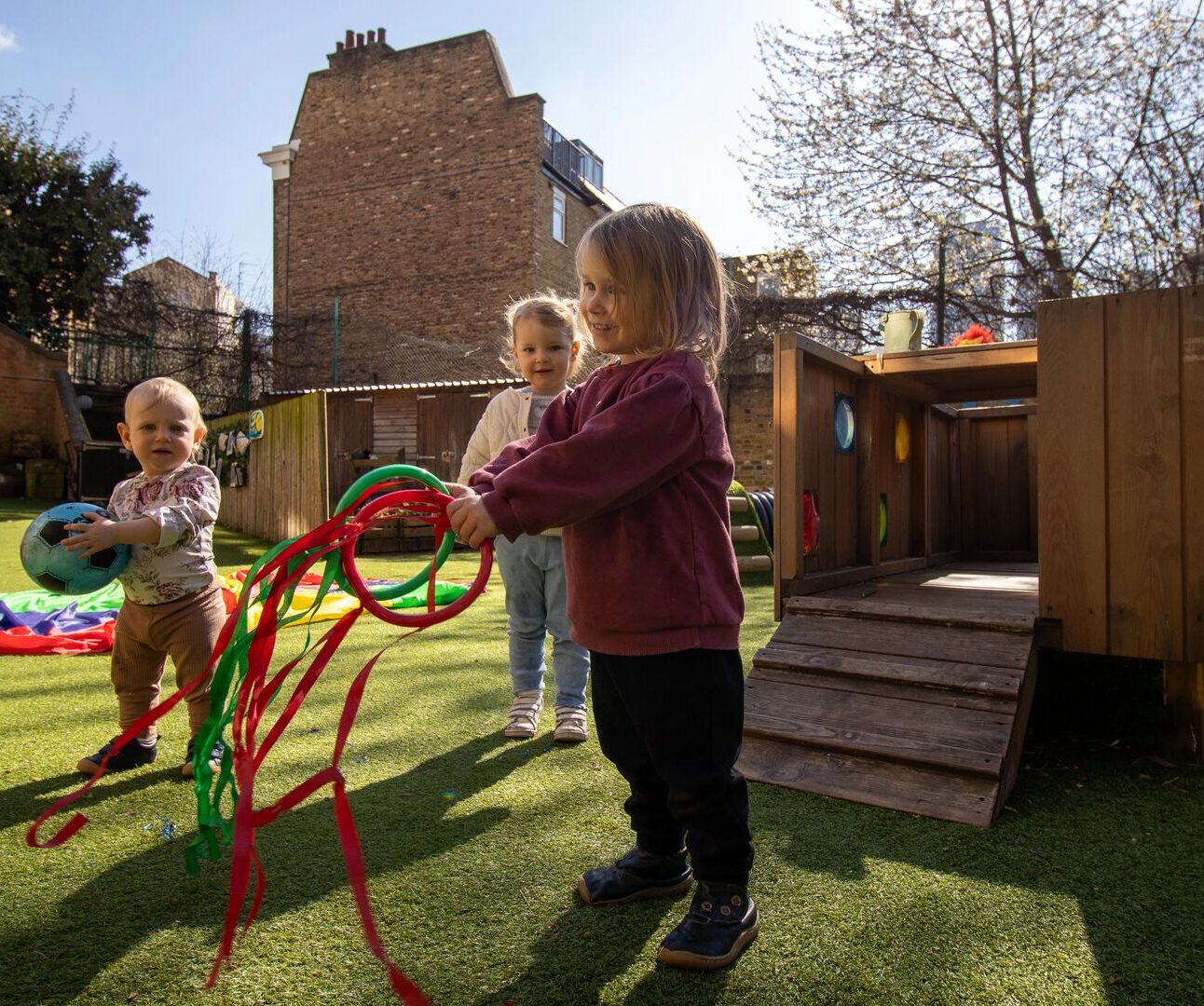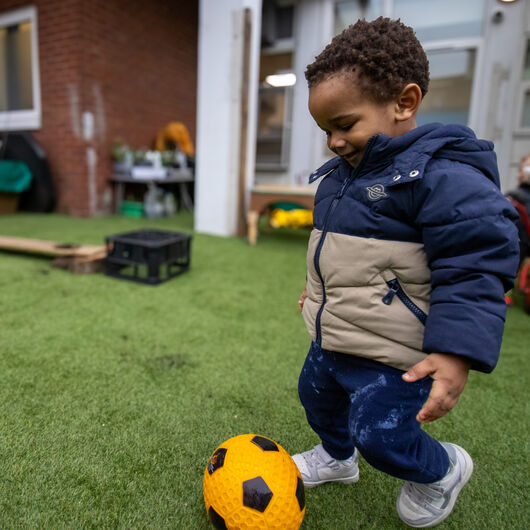
Another Consultation… This time, it’s Space
Just as the ink dries on the Ofsted consultation, up pops another. This time it’s about space, equally important and not to be overlooked. The Department for Education (DfE) has…
December 6th 2017
Armed with some tea and a KitKat, I sat down to read the new Ofsted Report Bold Beginnings. As a child, I often caused my mother a great deal of stress by being bold (Irish for naughty).
This fearlessness was usually in the form of “answering back”. I can’t count the number of swipes of the tea towel I had because “ I was bold”! I was therefore looking forward to a bold report. In my book to be bold is to be brave and fearless and do something that has with it a risk like walking across the Sahara ( I learned about this when I sat next to Ben Fogle at the NMT Awards last week!).
Sadly, the report is neither brave nor fearless. It’s far too accepting of the policy of placing four years into school. It’s a confusion of perspectives not sure whether to align with what is right for our children or stick to the Government line, that all four years olds should go to school. There was far too much emphasis about preparing children for their school life, just accepting that it’s right for four year olds to be in Reception especially give their statistics that In 2016/17, the quality of early years provision was inadequate in 84 schools and required improvement in a further 331 of those inspected that year.
The report ignores what happens in nurseries, a place far more suited to little four years olds. The Head Teachers who were interviewed said that Reception was the beginning of education and children in Reception needed more than just a repeat what had happened at nursery. And I quote
Most leaders and staff acknowledged that Reception practice needed to be different from pre-school or nursery provision and then they give an example of good practice which I would describe as bog standard nursery practice,
“…snack time was planned and timetabled as a communal activity. Teachers prompted children to ask questions and remember their manners. It was a time to teach by counting plates and cups; describing the appearance or taste of new fruits and vegetables; singing a song; or reflecting on what children had been doing so far that day”
Hmmm, did this ignore the importance of how we teach in nursery and the time it takes for small children to practice and repeat so they embed their learning? Gill Jones in her blog https://bitly.com.np/ZWaNF disappointed me with her less than bold approach. She excused herself with the statement
“I want to stress that we are not criticising pre-schools, nurseries and childminders. Indeed, earlier this month, Ofsted published statistics that revealed the proportion of childcare providers on the Early Years Register judged good or outstanding is now 94 per cent. We know that this improving quality of provision really helps get our children well-prepared for Reception.” Come on Gill, this is anodyne, we expect more of you. We respect you and so should Ofsted as you are one of the people that gives Ofsted a good name.
According to the 41 Head Teachers interviewed, education in Reception is formal, although some recognised the importance of play. But then like Cruella de Ville they said that it was best to control the play so as to use the aspects of play suitable to direct teaching rather than learning directly through play!
And I quote
…they knew when play was the right choice in terms of what they wanted children to learn and when other approaches might be more effective. Even within play, teachers made decisions about how structured or unstructured, dependent or independent each opportunity would be.”
My heart sinks for those children as I think about how that is translated by the ill-informed and the NQTs who they referenced in the report as not being as well trained enough to lead good teaching in Reception. So much for the obsession with all staff being graduate equates to the best quality. What a basket of confusion and snobbery with our children the victims.
Much of the report needs to be challenged. So many comments are unclear. What do Head Teachers mean when they said that they did not accept that children can catch up later. What does that mean? Catch up meaning having the time to achieve their milestones or have time to reach maturation like the challenges faced by summer born children? Its not a race. They need time and the right support to reach the same starting point as their peers but the routes could be many. I wonder, reading the report, whether we know enough about four year olds or whether we even like them. It’s almost a dismissal of what four year olds need to be. Remember the importance of childhood as the rights of every child.
“Dance. Dance for the joy and breath of childhood. Dance for all children, including that child who is still somewhere entombed beneath the responsibility and scepticism of adulthood. Embrace the moment before it escapes from our grasp. For the only promise of childhood, of any childhood, is that it will someday end. And in the end, we must ask ourselves what we have given our children to take its place. And is it enough?”
Richard Paul Evans, The Christmas Box Miracle: My Spiritual Journey of Destiny, Healing and Hope
What’s the difference between a four-year-old in their own clothes or a school uniform? Nothing at all so why do we need to treat them differently? A child attending a nursery may have the gift of time to learn the pleasure of books, to wallow in words and songs, to learn to read on the lap of an adult. This Ofsted report is talking about the same four year old learning to sit on a chair, to grip their pencil correctly as well as getting their heads around phonics. Do they really need this at four? Show me the research that says imposing this formality on four year olds makes their ability to read, write and count better, more embedded and confident? Why is it essential to learn all this at four when they will just as easily achieve it by six years giving them time to go through their development stage and maturation with an appropriate nursery education. European children seem to cope perfectly well with that system and exceed us in many of the measurements throughout the educational journey.
Ofsted, so quick to castigate should really have exercised some bravery here. How is it right to think that children benefit from the view of Head Teachers who
“…made deliberate, informed choices about the body of knowledge their children needed in order for them to succeed. These leaders began by making sure that their staff started teaching quickly, including the specifics of reading, writing and numbers. They did not believe in a prolonged settling-in period, even when children arrived from a number of pre-school settings rather than from the school’s own nursery. Many schools, especially those with two-year-old or nursery provision, did not offer a staggered start over the first few weeks.
“Some headteachers did not believe in the notion of ‘free play’. They viewed playing without boundaries as too rosy and unrealistic a view of childhood.”
Shame on you! Inspectors visiting nurseries would quite rightly challenge this if they were doing a nursery inspection and wonder as to how we were sensitively managing transitions. This is a report that does not merit the title “Bold Beginnings”. It’s a travesty full of confusions and contradictions. Ofsted, you were neither brave nor bold. You have simply accepted the Government view that education is all about formality. Great educationalists continue to point out that childhood is a time in its own right. If we value that short five years and provide children with the high quality experiences and appropriate opportunities children will become great readers, writers and mathematicians. There is no need to rush.
”A Child Mis-Educated is a Child Lost.”
John F Kennedy

Just as the ink dries on the Ofsted consultation, up pops another. This time it’s about space, equally important and not to be overlooked. The Department for Education (DfE) has…

How I Learned to Stop Worrying and Love the Kill Switch! This is AI blog number four, and by now I thought I’d be off down the rabbit hole exploring…

Are children deprived of the opportunity to play?… …is not a new question, but one that continues to be tackled on many levels. Greg Bottrill’s book ‘Can…